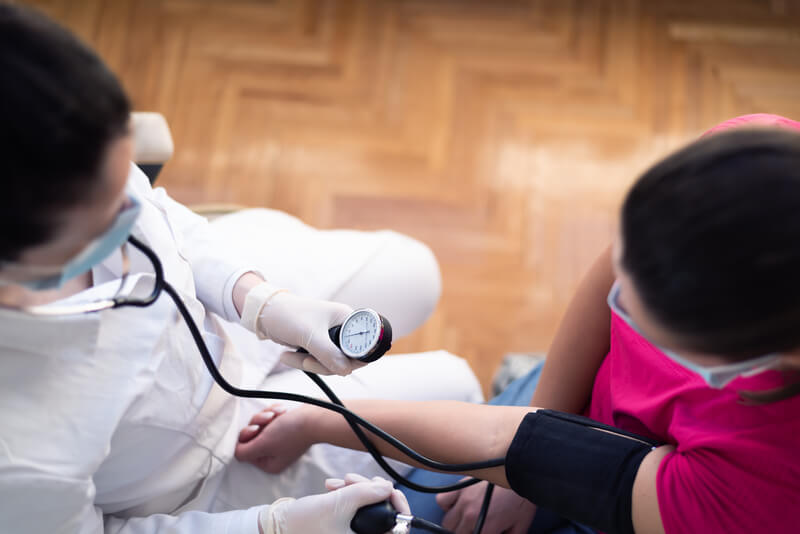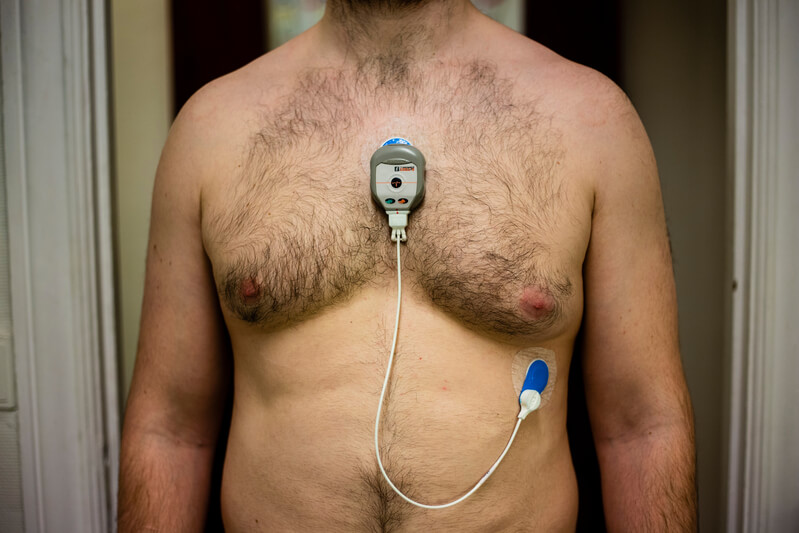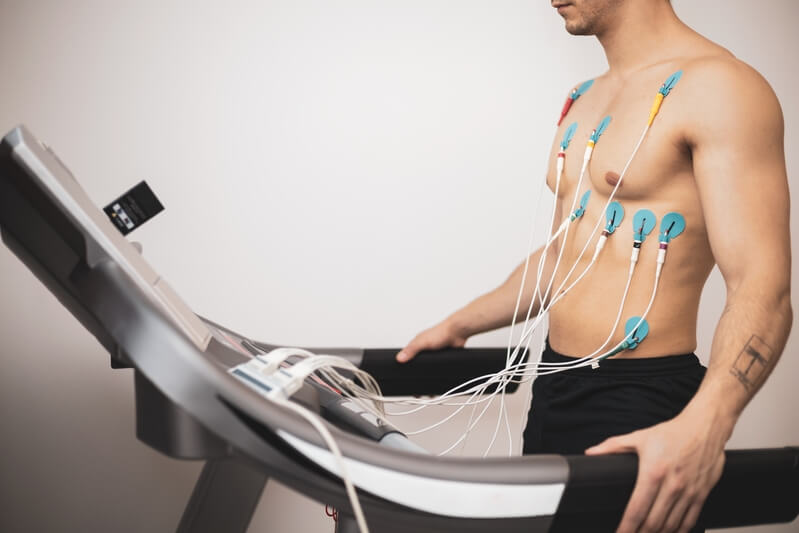
Cardio health tests allow us to get a better picture of your overall cardiac health. The exact types of cardio health tests you need will depend upon your individual evaluation and health situation.

24-hour ambulatory blood pressure monitoring (ABPM) monitors your blood pressure in real-time over an entire day. It allows Dr. Lilan Ahiable, our cardiologist, to monitor your blood pressure as you go about your usual daily activities, such as sleeping, working, and doing things around the house.
ABPM is preferred over the blood pressure readings taken when you are sitting in the doctor’s office. It allows Dr. Ahiable to get a clearer picture of your blood pressure throughout the day.
There are distinct benefits to measuring blood pressure readings while outside the doctor’s office. Blood pressure measurements in the doctor’s office:

A transthoracic echocardiogram (TTE) is the most common type of echocardiogram (echo). The TTE is a test that uses ultrasound (sound waves) to create an image of your heart. This gives us a complete view of your heart, including all four chambers, four heart valves, and nearby blood vessels.
A TTE can provide detailed information about your heart. It is used to look for many different conditions, such as:

A transesophageal echocardiogram (TEE) is a specialized cardiac procedure that provides detailed images of your heart's structures and functions. During this procedure, a tube with an ultrasound device is passed down your esophagus or food pipe to take a series of moving pictures of your heart.
TEE can be used to help detect heart valve diseases, congenital defects, blood clots, infections, and other cardiac abnormalities that may not be visible through external imaging methods.
At Sydnor Cardiovascular Center, we offer expert cardiac care using the latest diagnostic technology. Our board-certified cardiologist, Dr. Lilian Ahiable, has extensive experience performing TEEs with precision and patient comfort in mind.
We take a personalized, patient-first approach, ensuring you receive a thorough evaluation, accurate diagnosis, and an effective treatment plan tailored to your heart health needs.

An electrocardiogram, also called EKG or ECG, is a quick and painless test to identify issues with your heart’s electrical activity. It records the electrical signals in your heart with the help of a quick, standard, and painless test used to detect heart problems and monitor your heart’s health.
The test can be used to get a baseline tracing of your heart’s function, which can then be compared against future ECGs to see if there have been any changes in your heart’s function. If you are going to have surgery or start treatment for a heart condition, an ECG can be a great way to establish the overall health of your heart.

A cardiac event monitor, also known as an event recorder, is a painless way to record your heartbeat on the go, away from the doctor’s office. It record’s your heart’s electrical activity when you have symptoms.
An event monitor is a small limited-function electrocardiogram (ECG) you wear that records your heartbeat. The primary purpose of an event monitor is to record irregular heartbeats, which can be hard to pick up during your appointment.
The information is transmitted directly to your healthcare provider so they can actively analyze your heart while you are having symptoms.
There are two different types of event monitors, a non-looping recorder and a memory-loop recorder.

An exercise stress test, also called a cardiac stress test, is used to learn more about your heart when you are in motion. Questions answered during a stress test include:
An exercise stress test is an excellent tool for learning how to identify and evaluate a variety of heart issues, such as:
Cardiac exercise stress tests are a great way to determine if you need additional tests to confirm a diagnosis. They can also help determine if you need treatment to lower your heart attack and heart disease risk.

There are a variety of cardiac blood tests that can provide insight into how well your heart is functioning. The results of these blood tests, combined with your medical history and family history, can help your cardiologist determine your risk of cardiovascular disease.
Cardiac blood tests are ordered if you have:
Cardiac blood tests are combined with additional information to determine your risk for stroke, heart attack, and other cardiovascular problems.
Call Sydnor Cardiovascular Center to learn more about the health of your heart, and determine if you have heart disease or are at risk for developing heart disease. Dr. Lilian Ahiable will work with you to determine what types of cardio health testing you need and help you get the treatment you need to keep your heart healthy.
Request an appointment online, or call us at 727-300-2282, and we will be happy to schedule a consultation at Sydnor Cardiovascular Center.